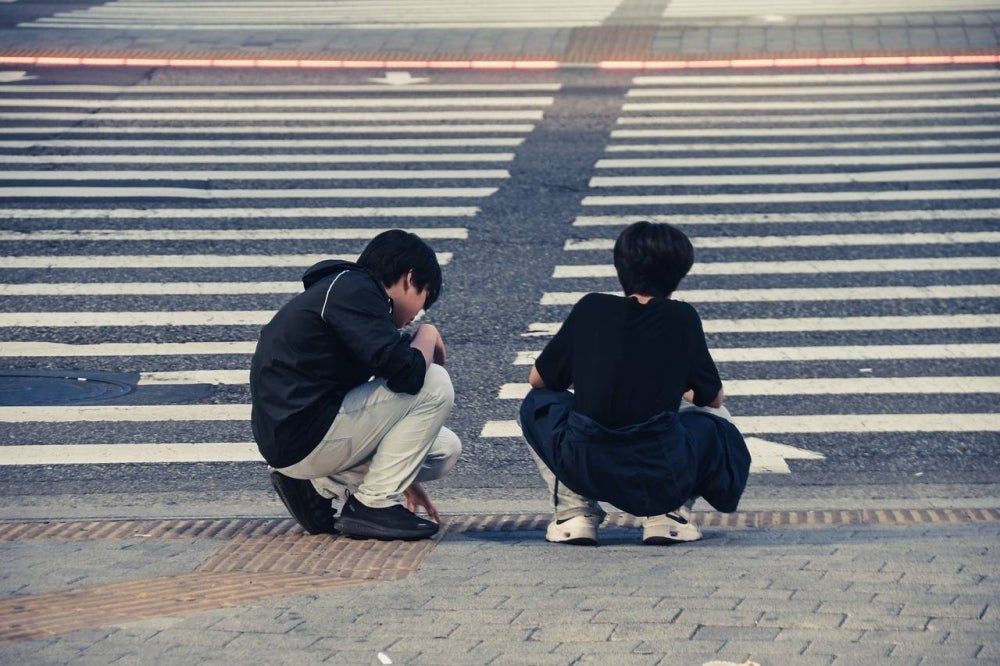Children should not take care of children - experts

SHAH ALAM - It is generally not recommended to leave children in the care of another child due to the potential risks involved.
People, especially parents, should understand that they cannot expect their young children to make sound adult judgements.
International Islamic University of Malaysia associate professor Dr Hijaz Ridzwan, who is also a psychiatrist, said many factors influence whether the move for minors to babysit other children was a wise approach or not.
In general, he said people must recognise that 'older' children were still children and they may lack the maturity, experience, expertise, and, most significantly, patience required to handle the obligations and demands of child care.
He said the older children also tend to lack the abilities to respond effectively, especially in situations requiring speedy decision making.
Situations where there were no other options, he said it was important to have extensive advice, safety protocols and continual monitoring of the situation.
"It is generally not recommended to leave children in the care of another child due to the potential risks involved.
"Younger children require constant supervision and care that older siblings may not be able to provide it consistently.
"Again, I reiterate that the elder siblings are still growing up themselves and may not possess enough experience especially if involving toddlers.
"Children have varying levels of maturity, and we cannot expect them to competently handle the responsibilities of that even adults sometimes struggle with," Hijaz said.
Hijaz stated that the stress and responsibility of caring for younger siblings at such a young age might be daunting, but it does contribute to their emotional well-being.
He said if it was a long-term arrangement such as weeks or months, the elder sibling may feel burnout and lead to depression.
There were numerous additional aspects to consider, he said including the level of assistance, monitoring, and the burden of care - caring for toddlers, siblings with Autism, ADHD, or any other impairment that was considered to be more difficult than caring for older, more independent children.
"Maybe 5-10 years ago, when access to babysitters was limited or unavailable, parents may have had no choice but to rely on older siblings to care for younger children.
"Life was much simpler back then, and we did not have much knowledge about mental health and the potential risks involved.
“Nowadays, I feel that we have evolved to a society that places more empathy on the well being of children.
"Parents should be aware of this and take advantage of the easy accesibility to the numerous professional services available, at varying costs,” he told Sinar Daily.
Hijaz said it was generally recommended to have responsible adult supervision or qualified caregivers to ensure the safety and proper care of children, especially when it involves very young children or in situations requiring extra attention.
On July 6, police detained 14-year old boy over the death of his nine-year old brother after he was allegedly strangled at their home in Bandar Hilir, Melaka. The incident took place around noon on July 5, where both their parents were not home when it happened.
However, it was reported that their mother were monitoring them via closed-circuit television (CCTV) and witnessed it online. She immediately called a neighbour who immediately ran over to their home to check.
Since the incident, their father said his eldest son's behaviour and attitude began to change after he was bullied by seniors at the Arabic boarding school in Alor Gajah where he studies.
Referring to this incident, Hijaz said it was worth noting that tragic events like this underscored the dangers of leaving young children solely in the care of their older siblings.
He said these incidents highlight the importance of responsible and adequate supervision for children's well-being and safety.

Meanwhile, Malaysian Society of Clinical Psychology president Joel Low states that the inherent concept of older siblings caring for younger ones were never a good idea as they were fundamentally still children.
She said the responsibility for children to look after themselves were already hard enough thus it would be even harder for them to responsible for another life as it pushes their limits beyond their capabilities.
"In addition, you’re also forcing the child to ‘grow up’ mature quicker or faster than what they’re able to do.
"There’s a reason why we have voting and drinking age limits, because biologically, psychologically, we’re not yet able to make good matured decisions to take care of ourselves, what more others.
“When you force them to grow up like that, it’s going to take a toll on them psychologically as well,” she told Sinar Daily.
Low said ultimately, the responsibility of a child should be with the parents or adults.
Adults, he said, cannot expect young children to have the capacity to make good mature decisions that were ‘right’.
Not only that, he said there was also the potential to influence or affect the individual long term.
He stated, however, that it was too soon to determine whether the child who needs to care for other children would end up having mental health issues, depression or such.
“But undoubtedly, it will have an affect on their personality,” he said.
Low cited a change in personality and mindset of these children that may include a heightened sense of duty to the point of becoming ‘superman’ or ‘superwoman’, having the need to save everyone around them and sacrificing themselves to take care of everyone at the expense of their own well-being.
These, he said, were on the milder end of the spectrum as they were more extreme situations as seen in recent times.
"Times change, and the exposure that our kids have now to different things, media, experiences, stories and actions have changed as well.
"I’m not saying that media makes us violent but they definitely open up to us a range of different options to choose from.
"And being children, we cannot rely on them to always be able to make the mature, right choice.
"I would not be surprised if the older brother was not even entirely aware what the concept of death was potentially,” he said, referring to the recent case in Melaka.
Touching on the parents perspective, KPJ Healthcare Berhad child and adolescent psychiatrist Dr Sankari Ganesh Narayanasamy said when both parents work to meet financial obligations, they must ensure the children are in the care of an older sibling or nanny.
When the option is to leave the kids with an older sibling, they must ensure that the person in charge is 18-years old and above.
“When they leave one child or ask the child to care for another child, they must understand the definition of child because the child is under the age of 18.
“In the recent case, the kid is still regarded a child and at the very least, they needed a guardian in the house to physically observe their actions.
"Children cannot be tasked to take up responsibility as they are still developing and lack the ability in thinking and maturity.
"Although they can be trained to be responsible or take care of others but still under strict monitoring of another adult and not to be left on their own.
"In terms of brain development, an adolescent is still immature in problem-solving skills, decision-making skills and negotiation skills thus why many rely on their emotions to make a decision, which often seem immature and could be disastrous," he told Sinar Daily.
The parent’s in this situation should not be blamed as they were already going through a difficult time, he said, adding that the need support to endure the trauma.
Sankari said lthough parents may leave small children with older siblings in the past, back then community support was still “extremely strong” as many still had relatives and neighbours to assist in times of emergencies.
"We rarely know our neighbours these days and children in this era are also more stressed than children in prior eras.
"Today's world is overly competitive, stressful, and draining on young minds by bullying, family strife, a lack of social support, internet addiction, social media, and other factors all lead to poor mental health in society,” he said.
Download Sinar Daily application.Click Here!















